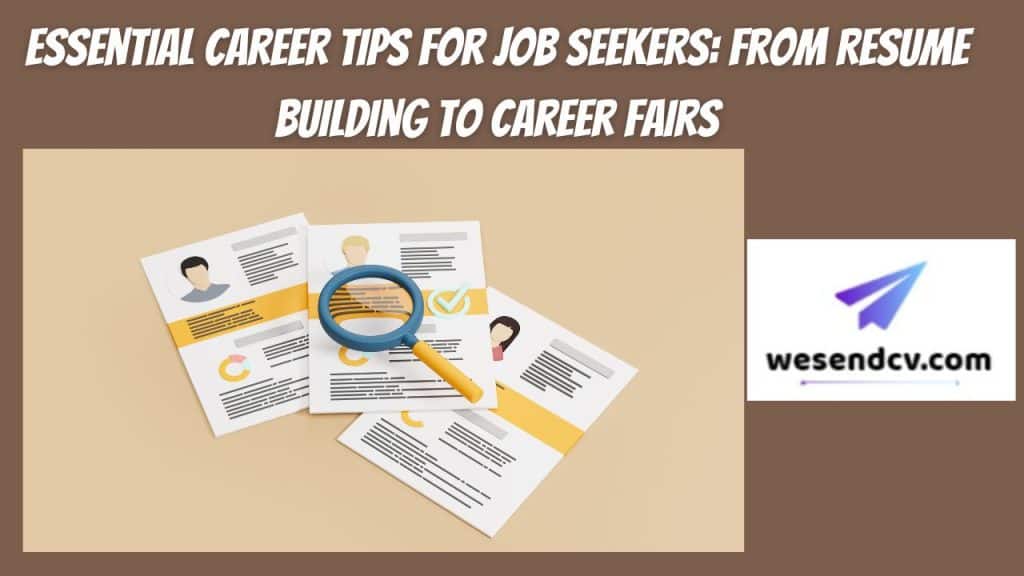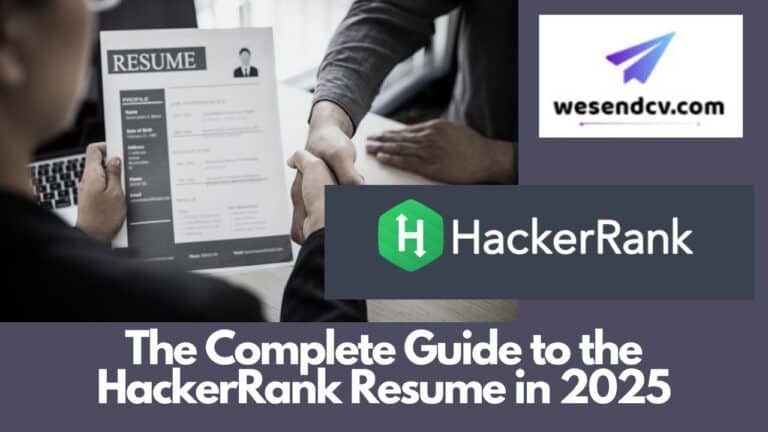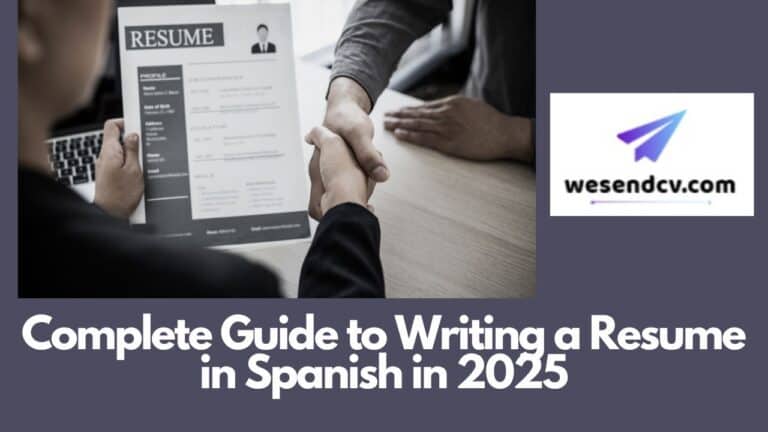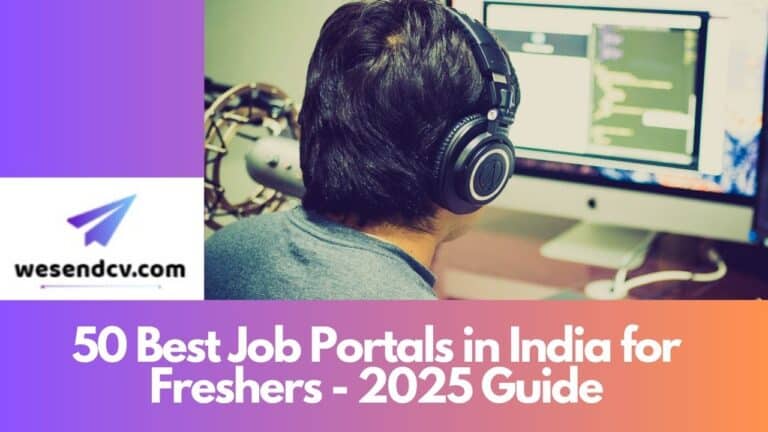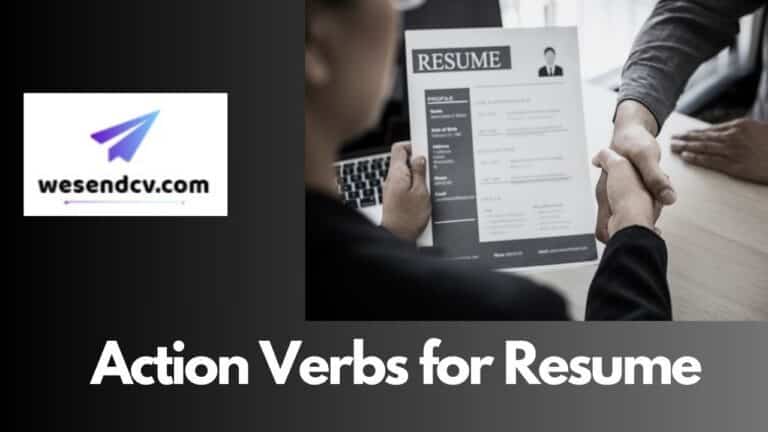Navigating the job market, especially for first-time job seekers, can be intimidating. Whether you’re preparing your resume, attending career fairs, or optimizing your LinkedIn profile, each stage of the job search process requires careful planning and execution. In this article, we will cover essential guidelines that will help you succeed at career fairs, write a resume with no prior experience, and make a strong impression during the interview process. Let’s dive into the key steps and strategies you should follow.
Main Highlights of Content
ToggleWhat Guidelines Should a Job Seeker Follow to Ensure Success at Career Fairs?
Career fairs provide a valuable opportunity to network with potential employers, but attending one can be overwhelming if you’re unprepared. Here are some essential guidelines for maximizing your career fair experience:
- Research the Companies: Before attending, review the list of companies that will be present. Research their mission, products, and open positions so you can target your conversations accordingly.
- Prepare Your Elevator Pitch: A concise, 30-second introduction that summarizes who you are, your key skills, and what you’re looking for will make a great first impression.
- Bring Multiple Copies of Your Resume: Tailor your resume for different roles and bring multiple copies to hand out to recruiters.
- Dress Professionally: First impressions matter, so ensure you are dressed in business attire appropriate for the roles you are targeting.
- Follow Up After the Fair: After the event, send thank-you emails to the recruiters you spoke with to reinforce your interest and keep the conversation going.
Check out more tips on how to optimize your resume for career fairs to ensure that your application stands out.
First-Time Job Seeker: Resume Summary with No Experience
Writing a resume when you have no job experience can be challenging, but it’s not impossible. Here’s how to write a compelling summary for first-time job seekers:
- Focus on Transferable Skills: Highlight skills acquired from academic projects, volunteer work, or extracurricular activities. For example, teamwork, leadership, or communication skills are transferable to almost any job.
- Emphasize Education: If you lack work experience, emphasize your educational achievements. Mention relevant coursework, internships, or certifications that align with the job you’re applying for.
- Use a Professional Tone: Your resume summary should convey enthusiasm and professionalism. Even with no experience, showing a passion for the industry will make you stand out.
Example of a First-Time Job Seeker’s Resume Summary:
“Recent college graduate with a degree in Communications and strong project management, organizational, and teamwork skills. Eager to apply academic knowledge and problem-solving abilities in a fast-paced marketing environment.”
Need help crafting your resume? Use the free resume tools provided on our platform to get started.

Which Document Should a Job Seeker Send with a Résumé to a Potential Employer?
A well-crafted cover letter should always accompany your resume. The cover letter serves as an introduction and a chance to personalize your application, emphasizing why you’re the perfect fit for the role.
Why You Should Include a Cover Letter:
- Personalization: A cover letter allows you to address the hiring manager directly, mention the specific role you’re applying for, and explain why you’re interested in that position.
- Highlight Key Achievements: While your resume provides a summary of your experience, the cover letter allows you to elaborate on key achievements and skills that align with the job description.
- Show Enthusiasm: Expressing enthusiasm for the role and the company can set you apart from other candidates who only submit a resume.
For more information on how to tailor your application package, visit our cover letter tips and tricks page.
What Action Should a Job Seeker Take Prior to an Interview?
Preparing for an interview is critical to making a strong impression. Here’s what you should do before your interview:
- Research the Company: Understand the company’s culture, mission, and recent news. This knowledge will help you tailor your answers to align with their values and goals.
- Prepare Responses to Common Questions: Practice answering standard interview questions like, “Tell me about yourself,” and “Why do you want to work here?” Use the STAR method (Situation, Task, Action, Result) to structure your answers.
- Plan Your Outfit: Make sure your attire is professional and appropriate for the company’s dress code. When in doubt, it’s better to be overdressed than underdressed.
- Prepare Your Own Questions: Asking thoughtful questions at the end of the interview shows that you are genuinely interested in the role and company.
For more detailed advice, explore our interview preparation guide.
As a Job Seeker, What Are Some Pros and Cons of the Job Search Process Typically Taking 20-40 Days?
The job search process can take anywhere from 20 to 40 days, and this timeline comes with both advantages and disadvantages.
Pros:
- Thorough Selection Process: A longer process usually means that the employer is carefully evaluating candidates, which can increase your chances of standing out if you’re well-prepared.
- More Time to Prepare: You’ll have ample time to refine your resume, prepare for interviews, and research the company.
Cons:
- Uncertainty: The waiting period can be stressful, particularly if you’re eager for feedback or if multiple companies are involved in your job search.
- Missed Opportunities: If you’re waiting on one offer, you may be tempted to delay applying to other jobs, potentially missing out on other opportunities.
To manage the waiting period effectively, continue applying to multiple jobs and follow up with employers regularly.
Typically, What Should a LinkedIn Profile Accomplish for a Job Seeker?
A LinkedIn profile serves as an extension of your resume and an opportunity to network with professionals in your field. Here’s what a well-optimized LinkedIn profile should accomplish:
- Showcase Your Professional Brand: Your LinkedIn profile should highlight your professional achievements, skills, and expertise. Use a professional photo, write a compelling headline, and craft a summary that reflects your career goals.
- Highlight Key Skills and Experiences: Use your profile to highlight the same skills and experiences mentioned in your resume. Make sure these sections are filled with relevant keywords, as recruiters often search for candidates using LinkedIn.
- Network with Industry Professionals: LinkedIn is a powerful networking tool. Connect with professionals in your field, join industry groups, and engage with content to increase your visibility.
- Gather Endorsements and Recommendations: Endorsements from colleagues and recommendations from previous employers can strengthen your profile and demonstrate your value to potential employers.
For a detailed guide on optimizing your LinkedIn profile, check out our LinkedIn optimization tips.
Conclusion
Whether you’re a first-time job seeker or an experienced professional, navigating the job search process requires careful preparation and attention to detail. By following the guidelines outlined in this article, from crafting an ATS-friendly resume to making a strong impression at career fairs, you can increase your chances of landing your dream job.
